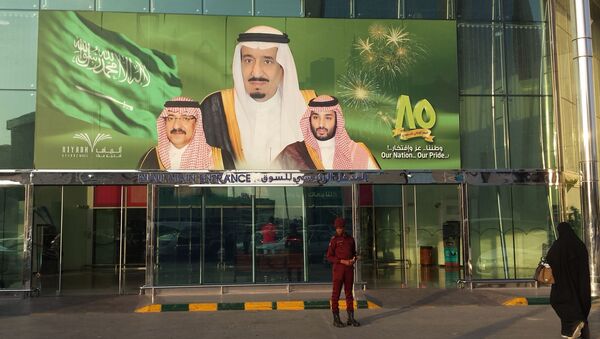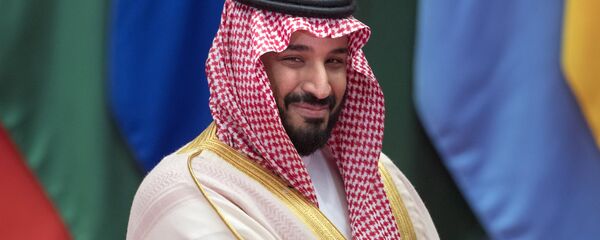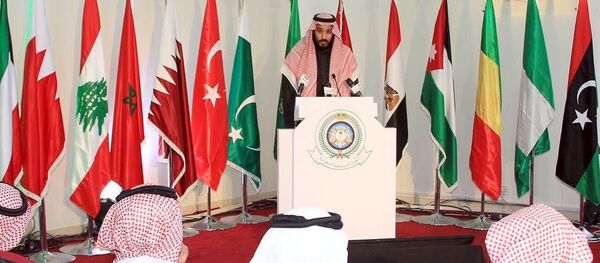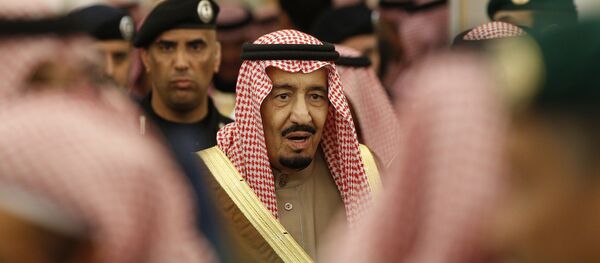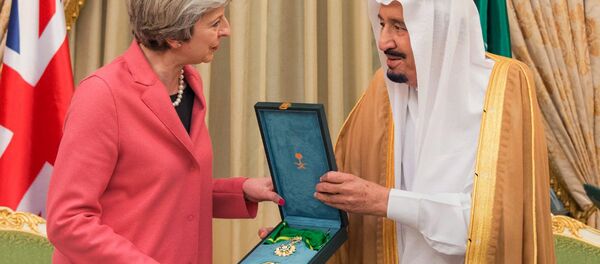He also recalls a Citigroup report, which has warned that Saudi Arabia could run out of oil to export by 2030. Its export capacity could steadily reduce, and, “if nothing changes, Saudi may have no available oil for export by 2030,” Citi analyst Heidy Rehman warned back in 2012.
"Saudi Arabia consumes 25 percent of its oil output and oil accounts for about 50 percent of its electricity production. With peak power demand rising by about 8 percent per year, the nation is aiming to more than double its power capacity by 2032 through new nuclear and solar installations," the report said.
If power demand were to grow as predicted and there were no change to the electricity fuel supply mix, “we estimate Saudi Arabia would be a net importer of oil by 2030,” it suggested.
Recent reports seem to support the suggestion, at least with regards to Saudi oil imports to the US. While imports remained strong through May, averaging over 1.2 million barrels per day for the first five months of the year, June imports then slipped, falling to their lowest since last November, before July imports dropped even further. With just a few days left of the month, Saudi imports to the US are down to their lowest since February 2015.
He further explains that there is also certainly something wrong in the internal affairs of the kingdom, where the recent abrupt shake-up of the line of succession and the appointment of 31-year-old Mohammed bin Salman as the new Crown Prince of Saudi Arabia has removed from power the older generation of the ruling dynasty.
On June 21, Saudi Arabia's King Salman bin Abdulaziz Al Saud decreed that his own son, Prince Mohammed bin Salman, 31, would ascend the throne when he dies, instead of the previous heir, the King's nephew, Prince Mohammed bin Nayef.
Most monarchies in the Western world choose heirs by absolute primogeniture, whereby the eldest son or daughter becomes the next in line to succession, followed by their eldest son or daughter, or their brothers and sisters. In Spain, males are given priority, while other European countries have eliminated this bias.
But in Saudi Arabia the choice of heir is often passed down through a more opaque and complex system.
Since the death of the founder of modern Saudi Arabia, King Abdulaziz al-Saud (usually referred to as Ibn Saud), in 1953, control of the absolute monarchy has been passed down by his sons. In the middle of the 20th century such a line of succession was particularly necessary as it "stitched together" Saudi Arabia from a large number of tribes.
"There are about five to six thousand princes and emirs in the House of Saud. The claims to power of the first generation have not been challenged for a long while. Not fixed anywhere, the line of succession in the country suggested that the Saudi crown is given to the oldest in the clan," Gashkov says.
Six monarchs, the sons of Ibn Saud, had replaced each other on the throne until King Salman had broken the tradition. He first ousted from power his younger brother Prince Muqrin bin Abdulaziz. Back in March 2014, King Abdullah named him deputy crown prince, making him second in the line of succession behind his brother Salman bin Abdulaziz Al Saud.
On January 23, 2015, upon King Abdullah's death and the accession of King Salman, Muqrin became the crown prince and first deputy prime minister. However already in April of 2015, King Salman forced his brother to leave the post through certain behind-the-scenes games.
On April 29, 2015, King Salman replaced Prince Muqrin with his nephew, Prince Muhammad bin Nayef as crown prince and he became the first in line to the throne of Saudi Arabia. He also held the post of interior minister, which he inherited from his father, Nayef bin Abdulaziz Al Saud, who was also the crown prince of Saudi Arabia from 2011 to 2012, but died in 2012, before then King Abdullah.
Faced with this energetic younger rival, Crown Prince Muhammad bin Nayef got lost and withdrew into the shadows.
"The major problem of Saudi Arabia, highlighted by the plummeting oil prices, is infrastructural. Approximately a quarter of the country's young people under 30 are unemployed. This could be explained by imbalances in education, which at large prepares experts in Islamic theology, who can't find jobs at the labor market," the observer explains.
These young people, he says, live either on state grants or at the expense of their parents, who are employed in the state sector, largely dependent on oil prices.
King Salman, who came to power in 2015, had announced the start of the budget belt-tightening, which had a direct impact on numerous Saudi bureaucrats. The public servants were deprived of additional cash payments and were forced to pay in full for gas, water and electricity.
Trying to free additional jobs at the labor market, the authorities declared a manhunt for migrant workers, thus hitting the country's business owners.
"Against the lowering oil prices, the appointment of Mohammed bin Salman made him the face of the budget austerity. Popular blogger Turki Al Shalhoub, a writer with more than 70,000 followers on Twitter, referred to Mohammed bin Salman’s Vision 2030 plan as 'the vision of poverty,'" Gashkov says.
A Short Victorious War
Many citizens have groused privately and on social media about their reduced incomes and higher prices for gasoline, water and electricity since subsidies were cut in late 2015. A slew of complaints could be stopped by a short victorious war, Gashkov further explains.
Crown Mohammed bin Salman is the main adherent of the military operation in Yemen, which, apart from the punishment of Houthis rebels could also united the Saudi nation. However much to the disappointment of Riyadh, its intervention is of no success. Their inexperienced military is striking civilians, defacing the course of the crown prince in the international media.
"By trying to attack Iran both in Qatar and Yemen (Houthis rebels are being supported by Tehran), the crown prince holds in suspense the forces of the kingdom, which is sliding into poverty," the observer says.
Meanwhile, the family opposition is taking shape in Saudi Arabia, displeased with the fact that power in the country has ended up in the hands of someone who has no rights for it, he adds.
The appointment of Mohammed bin Salman has ruined the dynastic ambitions of several dozen dynasty members. According to the previous traditions of inheriting the throne by seniority, all of them had a chance of becoming king. King Salman, however, broke the tradition and appointed Mohammed bin Salman, the fourth youngest of his sons, thus removing the Old Guard far from power.
Hence they are waiting for the crown prince to make a mistake. And the lower oil prices go, the fiercer the game of thrones is, Gashkov concludes.

